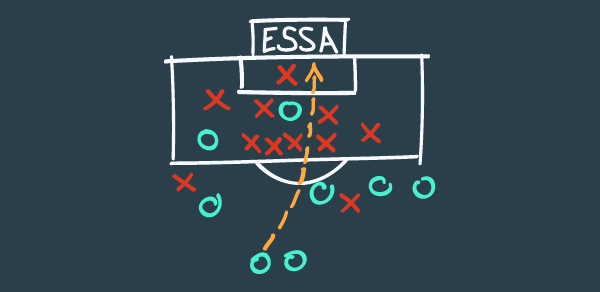Feds Set Stage for ESSA ‘Innovative’ Testing Pilots. But States, Vendors May Move Slowly

The U.S. Department of Education has given states an official heads-up to get ready to apply to pilot “innovative assessments” under the Every Student Succeeds Act.
But it seems likely that states will approach the feds’ offer cautiously—rather than in a headlong rush.
Up to seven states, or groups of them, can be approved to take part in the innovative assessment this year. If they do participate, that would presumably also generate work for vendors who are called on to help them craft those tests.
This week, the department of education released a notice inviting applications for the program. States are given 30 days from Jan. 3 to let the agency know of their intent to apply, though it’s not an absolute requirement, as my colleague Alyson Klein reported. The final applications from states are due April 2.
To recap: ESSA created a pilot program in which states or consortia of states could be granted the right to create innovative assessments in school districts, allowing them to experiment with competency-based, interim, performance-based, computer-adaptive and other types of testing. The goal is to scale up the piloted assessments statewide in a way that meets federal accountability requirements.
The first three years of the program are a demonstration period. Then the federal government will review the program and the department could decide to let more states than seven apply.
But a pair of experts who work with states on assessments said they don’t expect to see a wave of interest from the states in the initial round of pilots, though a few pioneers could emerge.
One reason for states’ likely reluctance is that the language of ESSA places some fairly strict requirements on them for their testing experiments. For instance, the new assessments must be comparable to existing state tests, and they must eventually be taken statewide. And the assessments have to be rolled out among a broad set of student populations and subgroups, as Alyson points out in her Politics K-12 blog post.
“I wouldn’t expect to see seven strong applications for states that are ready to go by April,” said Lillian Pace, the senior director of national policy at KnowledgeWorks, an organization that supports personalized-learning systems.
But Pace sees the initial application process as one that will provide a launching point for a “robust and serious conversation” among the states “about how to get another round ready,” once the feds open up the assessment pilot to more states.
Right now, “there’s a lot of interest” among the states in the program, “but there will be a minimum number of applications,” agreed Scott Marion, the executive director of the Center for Assessment, which works with states and districts in designing and implementing tests.
One reason states won’t be clamoring to try the assessments is that there isn’t any federal money specifically designated for helping them do that work, Marion added, in an interview with Marketplace K-12.
And without question, the work of designing innovative tests is complicated, time-consuming, and potentially costly, said Marion, citing the state of New Hampshire’s pioneering work on assessments. (New Hampshire’s performance assessments were an inspiration for the ESSA assessment pilot.)
“If it’s really innovative,” Marion said, new assessments will likely take “years to scale and innovate.”
States creating new pilot assessments may need help from testing companies, Marion said, but he doesn’t foresee a torrent of work coming to those private organizations.
“I haven’t heard a lot of talk about this in the vendor community,” he said, To the extent there’s a market for that work, “the margins are really small.”
New York Eyes the Pricetag
Even so, over time, some states are likely to try out the pilot, and more could follow, Marion said. He thinks state tests linked to the Next Generation Science Standards—which demand a deeper understanding of science than just memorizing facts — are ripe for the assessment pilot.
Others have suggested that writing or even arts-focused assessments could lend themselves to pilots. Experiments with performance-, competency-, and portfolio-based assessments also could take hold.
At least three states—Georgia, Hawaii, and New York—indicated an interest in innovative assessment piloting in the ESSA plans they submitted to the U.S. Department of Education.
But New York officials on Wednesday told Marketplace K-12 that they have concerns about taking on new costs through a pilot assessment, particularly amid other testing changes already on the state’s plate.
The state is already working on creating new assessments, which are to be aligned with the Next Generation Science Standards, New York department of education officials noted.
“We will carefully review [the federal application] and make a determination as to whether it would be appropriate at this time for New York to apply,” department of education spokeswoman Emily DeSantis said in an e-mail. “However, we understand there will be significant fiscal challenges if no additional federal funding is available for the pilot.”
Follow EdWeek Market Brief on Twitter @EdMarketBrief or connect with us on LinkedIn.
Image by Getty
See also:

Interesting related project: https://www.ets.org/note
Wow blatenly admitting they are using children and their education as guinea pigs for product development and profit$. This is child abuse ! When will parents wake up and pull their kids out of the government indoctrination centers ?
Thank you for this nice information. Jan Suchna Portal Rajasthan